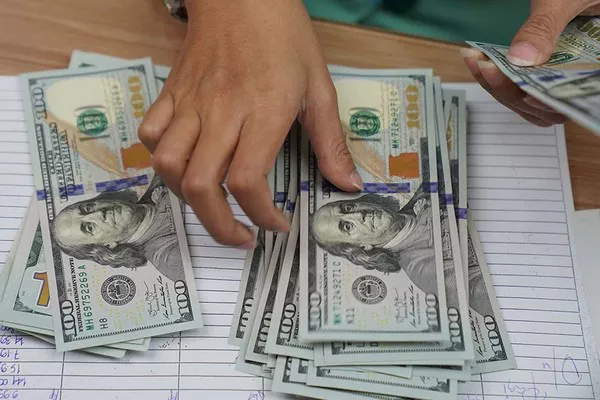The exchange rate between the United States dollar (USD) and the euro (EUR) has significant implications for international trade, investments, and global economic stability. As two of the world’s leading currencies, the relationship between the dollar and the euro is constantly evolving. This article aims to provide a comprehensive analysis of the factors influencing the relative strength of the USD and EUR, shedding light on which currency tends to be higher.
1. Understanding Exchange Rates:
Exchange rates determine the value of one currency relative to another. They are influenced by various factors including interest rates, inflation, geopolitical events, market sentiment, and government policies. It is crucial to note that exchange rates are highly volatile and subject to fluctuations.
2. Factors Affecting the Dollar:
The strength of the U.S. dollar depends on several key factors. Firstly, monetary policy decisions made by the Federal Reserve significantly impact the dollar’s value. Changes in interest rates and quantitative easing measures can influence investor confidence and capital flows. Secondly, economic indicators like GDP growth, employment figures, and inflation rates also play a crucial role. Finally, geopolitical developments and trade tensions may affect the dollar’s value, as they impact markets and investor sentiment.
3. Factors Affecting the Euro:
Similar to the dollar, multiple factors influence the strength of the euro. The European Central Bank’s monetary policy decisions, including interest rates and asset-purchase programs, have a substantial impact on the currency. Additionally, economic indicators such as Eurozone GDP, unemployment rates, and inflation levels contribute to the euro’s performance. Political developments within the European Union, particularly concerning member countries’ fiscal stability, can also affect the euro’s value.
4. Historical Performance:
To assess whether the dollar or the euro tends to be higher in value, it is essential to examine their historical performance. Over the past decades, both currencies have experienced periods of strength and weakness relative to each other. Economic conditions, interest rate differentials, and geopolitical events have all contributed to these fluctuations.
5. Recent Trends:
Recent trends suggest that the dollar has maintained relative strength compared to the euro. Factors such as the U.S. economic recovery post-pandemic, higher interest rates in the United States, and uncertainty surrounding European markets have favored the dollar. However, it is important to note that exchange rates can be affected by short-term market dynamics and are subject to change.
6. Market Sentiment and Investor Confidence:
Market sentiment plays a significant role in determining currency values. Perception of political stability, fiscal policies, economic growth prospects, and global events influence investor confidence. Positive market sentiment towards a particular currency can lead to its appreciation, while negative sentiment can result in depreciation.
7. Policy Interventions:
Governments and central banks often intervene in currency markets to manage exchange rate fluctuations. This can include buying or selling currencies to influence their supply and demand. Such interventions can impact the value of the dollar and the euro in relation to each other.
Conclusion:
Determining whether the dollar or the euro tends to be higher is a complex task influenced by numerous factors. Historical performance, economic indicators, market sentiment, and policy decisions all contribute to the relative strength of these currencies. While recent trends have shown the dollar to be relatively stronger, it is crucial to monitor ongoing developments and assess multiple variables to gain a comprehensive understanding of exchange rate dynamics. Traders, investors, and policymakers should remain vigilant and adapt their strategies accordingly, given the dynamic nature of currency markets.


